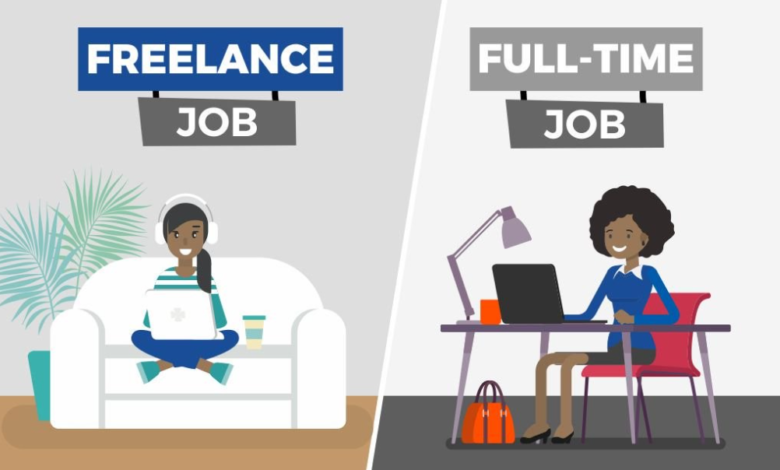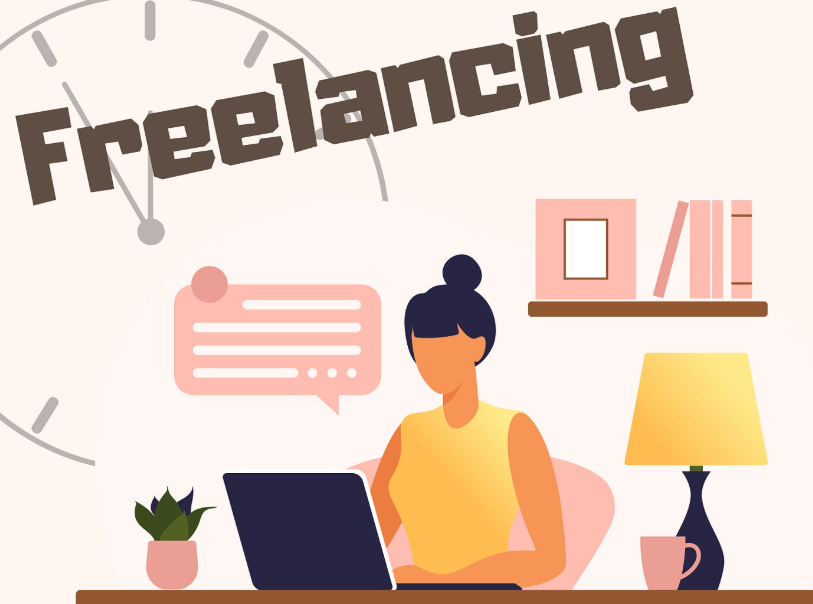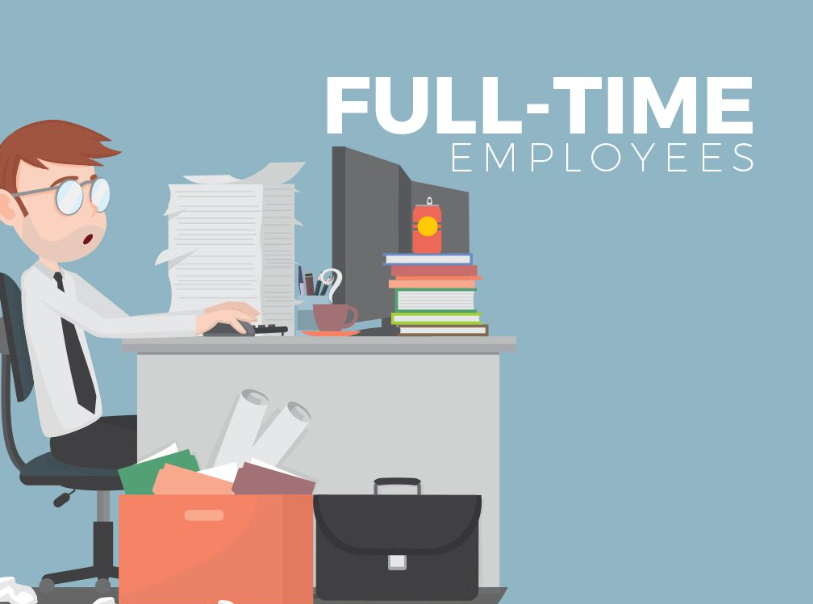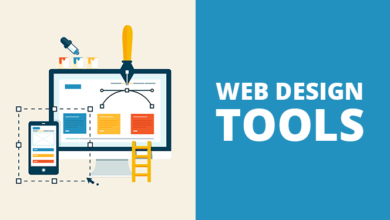Freelancing vs Full-Time Employment: Full Comparison

Are you seeking freedom in your work or the stability of a steady paycheck? The choice between freelancing vs full-time employment is one of the most pivotal decisions you’ll make in shaping your career and lifestyle. Do you crave the autonomy to dictate your schedule, or does the structure of a traditional role better suit your ambitions? As the lines between work and life blur in today’s dynamic job market, this decision becomes a profound reflection of your values and aspirations. Dive into the possibilities, weigh the benefits, and discover which path will lead you to your ideal future.
Table of Contents
What is Freelancing?

Freelancing is a dynamic form of self-employment where individuals harness their skills to work independently, often on a project or contract basis. Unlike traditional jobs, freelancers are not bound to a single employer, granting them the freedom to choose clients, set schedules, and dictate workloads. This level of autonomy enables professionals to balance personal aspirations with career goals. However, the debate of freelancing vs full-time employment often centers on stability versus flexibility. While freelancers enjoy creative control and diverse opportunities, they face challenges such as fluctuating income and self-management responsibilities. As the gig economy grows, freelancing continues to redefine how work is structured, offering an alternative to conventional career paths.
Advantages of Freelancing
- Flexibility and Independence
One of the most significant benefits of freelancing is the ability to structure your workday around personal preferences. Freelancers decide when, where, and how they work, enabling them to align their professional commitments with personal priorities. In the debate of freelancing vs full-time, this level of autonomy often tips the scale in favor of freelancing for those who value work-life integration. - Variety and Creative Freedom
Freelancers have the opportunity to work on diverse projects across multiple industries. This constant exposure to new challenges not only prevents monotony but also enhances creativity and adaptability. For individuals seeking to avoid the repetitive nature of a freelancing vs full-time job, freelancing provides a refreshing alternative. - Geographical Mobility
Freelancers are not tied to a specific location, unlike many full-time roles that require commuting or relocation. This freedom allows professionals to work from anywhere in the world, whether it’s a serene mountain cabin or a bustling urban co-working space. - Potential for Higher Earnings
In freelancing, income is directly tied to the effort and value delivered. High-demand freelancers can charge premium rates, take on multiple clients, and scale their workload as desired. This contrasts sharply with the fixed salary model in freelancing vs full-time employment, where income growth is often constrained by company policies. - Skill Development and Personal Growth
Freelancers must wear many hats—marketer, negotiator, financial planner, and project manager. This diverse skill set fosters independence and positions freelancers as self-reliant professionals. The constant need to innovate and adapt also drives personal and professional growth. - Work-Life Balance
With the freedom to set boundaries, freelancers can create schedules that support their mental and physical well-being. This control over their time is a stark contrast to the regimented hours often found in freelancing vs full-time employment scenarios.
Drawbacks of Freelancing
- Income Instability
One of the most significant disadvantages of freelancing is the unpredictable nature of income. Unlike full-time employment, where a fixed salary is guaranteed, freelancers face periods of feast and famine. During dry spells, the absence of a steady paycheck can create financial strain, making budgeting and long-term planning more difficult. - Lack of Employee Benefits
Freelancers bear the full responsibility of sourcing their own benefits, including health insurance, retirement plans, and paid time off. This makes freelancing a more financially demanding path compared to freelancing vs full-time employment, where benefits are typically offered by the employer. Without employer support, freelancers must factor these additional costs into their income and tax planning. - Administrative Overload
Freelancers must juggle not only their core work but also the extensive administrative tasks that come with running a business. From invoicing and tracking payments to filing taxes and negotiating contracts, these responsibilities take up valuable time and energy. In comparison, full-time employees generally have these tasks handled by the employer, making it a more streamlined work experience. - Isolation and Loneliness
Freelancing can be a solitary endeavor. Without the camaraderie of colleagues and the social interaction offered by an office environment, freelancers can feel disconnected. This isolation can lead to burnout and a sense of detachment, especially for those who thrive in a team setting. In contrast, freelancing vs full-time jobs often offer a social atmosphere that promotes networking and emotional support. - Limited Job Security
Unlike full-time employment, which typically offers job security and long-term stability, freelancers face the constant pressure of finding new clients and projects. The lack of a permanent contract means there’s always a risk of income disruption. During economic downturns or industry-specific slowdowns, freelancers can struggle to maintain a steady flow of work, making them more vulnerable to financial instability. - Time Management Challenges
While the flexibility of freelancing is a key benefit, it also comes with the challenge of managing time effectively. With no set schedule or clear boundaries, it’s easy to overwork or, conversely, procrastinate. In freelancing vs full-time employment, the structured workday provides a clear framework for productivity, something freelancers must establish and maintain on their own. - Difficulty in Building a Personal Brand
As a freelancer, establishing a personal brand takes time and effort. Unlike full-time employees who may benefit from the reputation and resources of a larger organization, freelancers must invest heavily in marketing, networking, and reputation-building to stand out in a crowded market. This constant hustle to build credibility can be exhausting, especially for those starting out in the industry.
What is Full-Time Employment?

Full-time employment refers to a structured work arrangement where individuals commit to a set number of hours, typically 40 hours a week, for a single employer. Unlike the autonomy of freelancing vs full-time roles, full-time employees work under the guidance of an organization, adhering to its policies, goals, and schedules. This arrangement provides stability in terms of a fixed salary, health benefits, retirement plans, and paid leave, making it an appealing choice for those seeking financial security and long-term career growth.
While full-time positions often offer clear advancement paths and regular performance reviews, they can also come with limitations. Employees may experience limited flexibility in terms of work hours and location. Compared to the more dynamic world of freelancing, full-time jobs typically follow a more rigid structure. However, for many, the security and sense of belonging to an organization make freelancing vs full-time a question of preference rather than necessity.
Advantages of Full-Time Employment
- Job Security
Full-time employment provides a safety net that freelancers often lack. With a regular paycheck, employees can predict their income and plan for future financial goals, such as homeownership or family planning. In a freelancing vs full-time scenario, this steady stream of income often outweighs the financial uncertainty of freelance work. - Employee Benefits
Beyond salary, full-time roles typically come with a comprehensive benefits package, including health insurance, paid vacation days, sick leave, and retirement savings plans. These benefits not only provide peace of mind but also contribute to a higher quality of life, reducing the stress that freelancers face in securing and managing their own benefits. - Career Growth and Advancement
Full-time employment offers a defined trajectory for career advancement. Employees are often evaluated regularly for promotions or raises based on performance, and there are structured paths for professional development. This makes career growth more predictable and tangible, unlike the uncertain path of freelancing vs full-time, where growth is dependent on client acquisition and market trends. - Work-Life Balance
A full-time job often comes with a clear structure, offering consistent work hours and holidays. This allows employees to better compartmentalize work and personal time, fostering a healthier work-life balance. Freelancers, on the other hand, must often work irregular hours and manage their own time, which can lead to burnout and stress. - Team Collaboration and Networking
Full-time employees are immersed in a workplace culture that encourages collaboration and networking. Working within teams allows employees to develop strong professional relationships, exchange ideas, and grow from others’ experiences. This collective environment is a stark contrast to the solitary nature of freelancing, where independent workers are often isolated from a larger professional community. - Access to Resources and Support
Full-time employees typically have access to company resources, including office space, technology, and administrative support. These resources can be crucial in enhancing productivity and performance. Freelancers, in contrast, must invest in their own tools and infrastructure, which can be expensive and time-consuming to manage. - Structured Work Environment
The clear division between work hours and personal life in full-time employment provides a stable routine, which can increase focus and productivity. In contrast, freelancing vs full-time employment often requires freelancers to self-impose structure, which can be challenging without external accountability.
In the battle of freelancing vs full-time, the right choice isn’t about stability versus flexibility—it’s about aligning your career with your lifestyle.
Drawbacks of Full-Time Employment
- Limited Flexibility
Full-time jobs typically come with rigid schedules, requiring employees to be at work during specific hours. Unlike freelancing vs full-time roles, where freelancers have the flexibility to set their own hours, full-time employees are often bound to a 9-to-5 routine, leaving little room for personal freedom or spontaneity. - Lack of Autonomy
Full-time employees are often required to work within the confines of company policies and corporate culture. This can lead to a feeling of being stifled or micromanaged. Freelancers, on the other hand, have more control over their work environment, clients, and projects. - Limited Earning Potential
While full-time positions offer a steady salary, they often come with a cap on income growth. Unlike freelancing vs full-time, where freelancers can scale their earnings by taking on more projects or clients, full-time employees typically receive fixed compensation, with raises or bonuses determined by the employer. - Limited Work-Life Balance
With fixed hours and often long commutes, full-time employees may struggle to achieve a true work-life balance. The rigid structure of freelancing vs full-time can lead to burnout, as employees find it difficult to disconnect from work during their personal time. - Risk of Job Insecurity
Despite the perceived stability, full-time employees are not immune to layoffs or company closures. During economic downturns or corporate restructuring, employees may find themselves without a job, facing the uncertainty they were hoping to avoid.
Choosing the Right Path
1- Work Style and Personality
Your work style and personality play a crucial role in deciding between freelancing vs full-time employment. Freelancers often thrive in environments that allow for flexibility and independence, preferring to set their own schedules and make autonomous decisions. If you’re self-disciplined, adaptable, and enjoy working alone, freelancing may align well with your personality. On the other hand, full-time employees typically excel in structured settings with clear expectations and collaboration. If you prefer a predictable routine, teamwork, and external guidance, a full-time role may be a better fit. Ultimately, matching your work style to the right path can significantly enhance your job satisfaction.
2- Financial Considerations
When evaluating freelancing vs full-time employment, financial stability is a key factor. Full-time roles offer a predictable, steady income with benefits such as health insurance, retirement plans, and paid leave—ideal for those who value financial security. Freelancers, however, experience fluctuating income based on projects and client availability. While freelancing offers the potential for higher earnings, it also carries the risk of income gaps during slow periods. Freelancers must also account for additional expenses like healthcare and taxes, which are often covered by employers in full-time roles. Weighing these financial aspects is essential when choosing the right career path.
3- Career Growth and Development
When considering freelancing vs full-time employment, career growth plays a pivotal role. Full-time positions often provide clear pathways for advancement, offering opportunities for promotions, skill development through company-sponsored training, and mentorship. The structured environment fosters professional progression with regular evaluations and feedback. In contrast, freelancers must create their own growth opportunities, relying on self-initiative and market demand. While freelancers can expand their portfolios and gain diverse experiences, the lack of a formalized career track can make long-term development more challenging. Both paths offer growth, but in different forms and with varied levels of support.
4- Risk Tolerance
When evaluating freelancing vs full-time, risk tolerance is a crucial factor. Full-time employment offers a stable income, job security, and benefits, which may appeal to individuals with a lower risk threshold. Freelancers, however, navigate a more unpredictable landscape, where income can fluctuate based on market trends and client availability. This requires a higher risk tolerance, as freelancers must manage periods of uncertainty, unexpected challenges, and inconsistent workloads. Those with a preference for stability and predictability may gravitate toward full-time roles, while those comfortable with risk and change may thrive in the dynamic world of freelancing.
5- Lifestyle Preferences
Lifestyle preferences significantly impact the choice between freelancing vs full-time employment. Full-time roles often provide a clear work-life separation, with set hours, weekends off, and the opportunity to disconnect from work. This structured routine suits individuals who prefer a predictable lifestyle. On the other hand, freelancing offers greater flexibility, allowing workers to set their own hours and work from virtually anywhere. This independence can be ideal for those who value autonomy and variety, but it also demands self-discipline. Whether you crave the stability of a fixed routine or the freedom to control your time, lifestyle preferences will guide your decision.
Strategies for Work-Life Balance
| Strategy | Description |
| Set Clear Boundaries | Define specific work hours and personal time to prevent one from spilling into the other. Communicate these boundaries to clients or colleagues to ensure mutual respect. This is especially important for freelancing vs full-time workers, as the flexibility of freelancing can lead to blurred lines between work and personal life. |
| Prioritize Tasks | Use effective time management techniques, such as Eisenhower’s matrix or task management tools, to prioritize tasks based on urgency and importance. For freelancers, this means focusing on high-paying or high-value clients first, while full-time employees should ensure they meet company objectives without sacrificing personal time. |
| Take Breaks | Regular breaks, whether short intervals or a midday walk, help recharge mental and physical energy. This is particularly crucial for freelancing vs full-time workers, as the temptation to work long hours is ever-present, but consistent breaks ensure productivity and reduce the risk of burnout. |
| Delegate When Possible | Delegation can come in various forms, whether passing tasks to a colleague in a full-time job or outsourcing non-core tasks like accounting or administrative work as a freelancer. By offloading tasks that don’t require your unique expertise, you can focus more on high-priority projects and maintain a balanced workload. |
| Make Time for Yourself | Ensuring a healthy work-life balance requires dedicating time to activities that nurture your well-being, such as exercise, meditation, or hobbies. For freelancers, this means creating a schedule that allows for downtime, while full-time employees should avoid the temptation to work overtime regularly. Prioritize moments that foster relaxation and mental clarity. |
| Learn to Say No | Being selective about which projects or tasks you accept is essential in preventing burnout. Freelancers must learn to turn down clients whose demands don’t align with their goals or values, while full-time employees should avoid taking on extra work that may impede their performance or personal life. Saying no is vital for maintaining long-term health and productivity. |
| Set Realistic Expectations | Setting achievable goals for both yourself and others helps prevent feelings of stress and failure. Freelancers can avoid over-promising clients by evaluating how much work they can realistically take on, while full-time employees should manage workloads by setting clear expectations with supervisors and colleagues to maintain a steady pace without overwhelming themselves. |
While freelancing vs full-time offers different paths, the ultimate measure of success lies in how well you balance personal freedom with professional growth.
Conclusion
In the debate of freelancing vs full-time, the decision ultimately depends on individual preferences, career goals, and lifestyle aspirations. Both paths offer distinct advantages and drawbacks, requiring careful consideration of factors like financial stability, career growth, and work-life balance. While full-time employment provides security, benefits, and structured advancement, freelancing offers unparalleled flexibility, autonomy, and the potential for diverse projects. The key is aligning personal values with professional objectives. Whether embracing the stability of full-time roles or the independence of freelancing, the right choice lies in understanding one’s priorities and the unique opportunities each path offers for personal fulfillment and career success.
Whether you’re navigating freelancing vs full-time employment, the key to happiness is choosing a path that supports both your ambitions and well-being.
FAQs: Freelancing vs Full-Time
- What is the main difference between freelancing vs full-time work?
The primary difference lies in flexibility. Freelancers work for multiple clients on their own terms, while full-time employees have a fixed schedule and are committed to a single employer. - Which is more financially stable, freelancing vs full-time?
Full-time employment generally offers more financial stability due to a consistent paycheck and benefits like health insurance. Freelancers may earn more but face income variability and lack of benefits. - Is freelancing vs full-time work better for career growth?
Full-time roles often provide more opportunities for career advancement, mentorship, and training. Freelancers, however, may find their own growth opportunities by diversifying their work and expanding their networks. - How does freelancing vs full-time impact work-life balance?
Freelancing offers flexibility, allowing you to set your own hours, but can lead to overwork. Full-time jobs provide structured hours, which may help maintain a clearer boundary between work and personal life. - Which is the better choice, freelancing vs full-time?
The choice depends on personal preferences, financial goals, and lifestyle. Freelancing offers autonomy and variety, while full-time work provides stability and structure.





555
Your words are pure magic! Have you discovered Sprunki Incredibox? It’s simply extraordinary.
⚡ Creative catalyst! Sprunki Game sparks innovative ideas.
Such a refreshing perspective! Have you seen what Spunky is up to? It’s quite remarkable!
Structural sound! Build with Sprunki Pyramixed‘s blocks!
This analysis is pure gold! Like the golden challenges in Sprunki Pyramix.
Pioneering 3D audio in browser games: Sprunki Game implements spatial sound features for immersive experiences.
Puzzle mastery incarnate! For more mastery, try Sprunki Pyraminx.
This really inspires! Just tried Image To Video for educational content! Image To Video adds subtle movement to diagrams that maintains student attention and improves retention. The professional quality Image To Video maintains has enhanced learning outcomes significantly!
avsDUYHI sQesB mogMPML
A code promo 1xBet est un moyen populaire pour les parieurs d’obtenir des bonus exclusifs sur la plateforme de paris en ligne 1xBet. Ces codes promotionnels offrent divers avantages tels que des bonus de dépôt, des paris gratuits, et des réductions spéciales pour les nouveaux joueurs ainsi que les utilisateurs réguliers.code promo 1xbet senegal